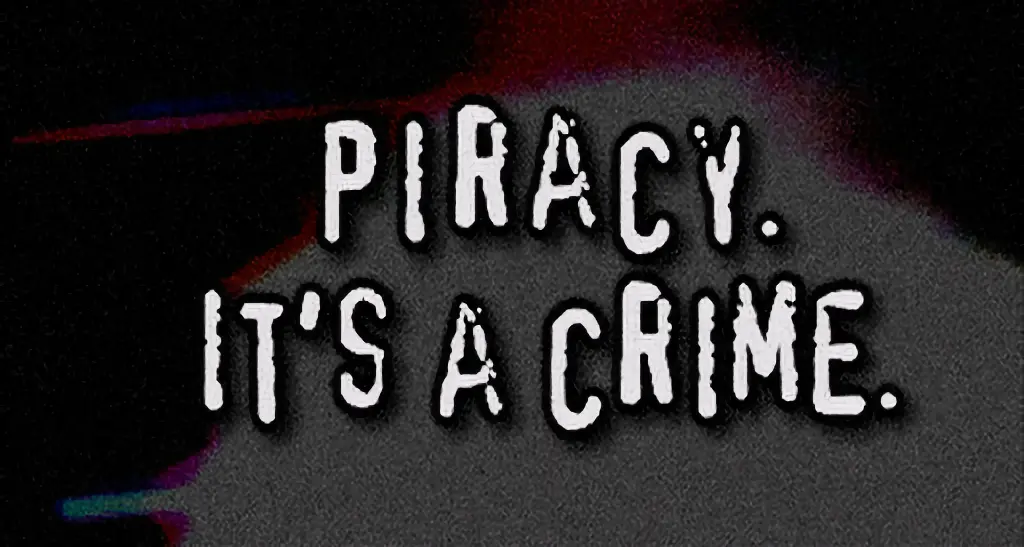On 'internet piracy' and 'copyright infringement'
Peoples' usage patterns change, as more and more people are connected to the internet and the speed and quality of those connections increases the more people will be looking for instant gratification from the entertainment industry.

This is a repost of an article from my old blog, originally from May 2012.
This is a bit of a departure from the usual nature of my blog; but after the recent court ruling in the UK banning ‘The Pirate Bay’, I thought I’d throw my two-pence worth into the debate. You might also want to read James Ball’s article on The Guardian’s Comment is Free Blog.
The online community is full of ways to circumvent such ridiculous censorship measures, rendering the judgement practically impossible to enforce — but then; most of the tech community online already knew this, so I’m not really banging on about anything new.
Instead I’m going to talk explicitly about ‘infringement’, and focus on the ‘piracy’ of television programmes.
A Story
First, let me introduce you to an entirely fictional person called “Little Bobby Tables (Bobby)” and his fictional ISP and home Cable TV service “Strumpet”.
Bobby lives in a big city in the UK and he has a very fast Internet connection from Strumpet, who also provide him with a fairly comprehensive Cable TV service, but it misses some big channels from major competitor to Strumpet, “Ground” who provide satellite TV.
Strumpet also has some “on demand” channels that let Bobby stream selected content to his TV at any time, although the selection is very limited so he seldom uses this service.
The set-top box that Strumpet provide Bobby also allows him to record any channel whilst watching another, or setting a timer to record a programme later. When Bobby remembers that his box can do this, he uses it quite often. More often than not though, he forgets.
Bobby works for a large software company that make a well known image manipulation application, and frequently spends long hours away from home on his commute or in the office. This means he misses quite a lot of interesting TV!
Bobby is a big fan of the BBC’s ‘Have I Got News For You’ and ‘QI’ and always watches them on a Friday when he gets home from work. He does this by pulling out his laptop and visiting the BBC iPlayer Website.
The iPlayer has every programme the BBC has shown in the past week available to watch online at any time, often for quite some time after the original content has aired.
This suits Bobby down to a T, since the content he wants to watch, and pays for, is available for him at any time quite conveniently. As a fairly tech savvy person, this matches his expectation of how content delivery on the Internet ‘should’ work.
The set-top-box which Strumpet provide also has an iPlayer viewer built in, but its cumbersome interface helps to make it so unpleasant to use that Bobby never uses it.
Bobby also really like the US TV Series ‘House’ which airs on “Ground One”, one of the competitor’s channels that Strumpet licences from Ground so that Strumpet customers can watch the TV shows that Ground airs.
Unfortunately, Bobby missed House this week, so he fires up Strumpet’s on demand service to catch the episode he missed, but uh-oh — it wasn’t selected for the catch up TV section, so he can’t watch it right now.
A quick look through the TV guide shows him that there isn’t a rerun for this particular episode of House in the next week.
So, Bobby opens up his laptop again and heads over to The Pirate Bay to see if he can find a Torrent for the episode of House that he missed. He quickly finds one, and thanks to the very fast internet connection that Strumpet provide him, he’s happily watching the episode of House that he missed.
Bobby then makes sure to set his set-top box to record the next weeks' episode of House so that he doesn’t miss it again, and deletes the episode he just watched – he’s not going to be inconvenienced again, no not him!
Two weeks later, Bobby gets a letter from Strumpet telling him that he has been illegally sharing files online and breaking copyright law, and that he may face legal action.
A week after that, Bobby is arrested, and is told that he is going to be extradited to the US to face charges of breaking copyright laws.
And now for some opinion
The above story is, of course, a work of fiction, but worryingly following recent events, may well be a cold and hard reality for a lot of internet users in the UK.
Organisations like FACT (Federation against Copyright Theft) in the UK have done their level best to engrain in the psyche that ‘downloading a TV show’ is theft, and exactly the same (in law) as stealing a car or mugging someone in the street or walking into a supermarket and stealing a DVD from the shelf.
I’m not a lawyer, but I was fairly certain that stealing a car, downloading a movie and mugging someone in the street were very different. This is how the UK legal system defines theft:
A person is guilty of theft if he dishonestly appropriates property belonging to another with the intention of permanently depriving the other of it; and “thief” and “steal” shall be construed accordingly.
In FACT’s famous video campaign, the video claims:
Downloading pirated films is stealing, stealing is against the law, PIRACY, IT’S A CRIME
The absurdity of that particular claim has lead to a number of parodies, such as this one from the ‘IT Crowd’. I thought it would be interesting to see how this compares to Little Bobby Tables in our story above.
From the point of view of Bobby, downloading an episode of a TV show he missed so that he can watch it later is:
- Reasonable, and conceptually no different from how he watches television on the BBC iPlayer when he misses a show.
- Convenient, he consumes content in a number of ways – on his TV, his laptop and probably also on his phone, and in 2012 he expects to be able to do so.
- Harmless, he pays Strumpet his monthly fee for “permission” to watch the TV shows which are broadcast on their service. Bobby also downloaded this episode for his own private viewing, with no intention of selling it or in any other way depriving the ‘owners’ of House of any income.
While I can accept that a person or gang of people who use file-sharing services to download entires films or TV series, put them onto DVD and sell them to the public for much less than studios charge can indeed reduce the number of full-price DVDs that studio sells, I cannot accept that proscecuting someone doing as Little Bobby Tables has done above is hurting anyone but the people paying to watch TV.
Peoples' usage patterns change, as more and more people are connected to the internet and the speed and quality of those connections increases the more people will be looking for instant gratification from the entertainment industry.
Services like the BBC iPlayer and Netflix are a great start in delivering content online, but there is still a long way to go.
Until it’s easier for someone like Little Bobby Tables to not turn to ‘piracy’ to consume content that he’s already paying for, the longer sites like The Pirate Bay and all the others will thrive.
I should add that BitTorrent seems to permanently be associated with unlawful file sharing these days, rather than a useful tool for sharing large files with groups of users.
While there will always be those who abuse a service, blocking sites like The Pirate Bay also harms those that are looking for perfectly legal things to download over BitTorrent, like distributions of Linux or public domain music.
The heavy handed approach just doesn’t work. What is needed is engagement and understanding from legislators and media owners / studios and the general public to build a lasting solution to this problem.
What does not help is criminalising someone like poor Little Bobby Tables.

